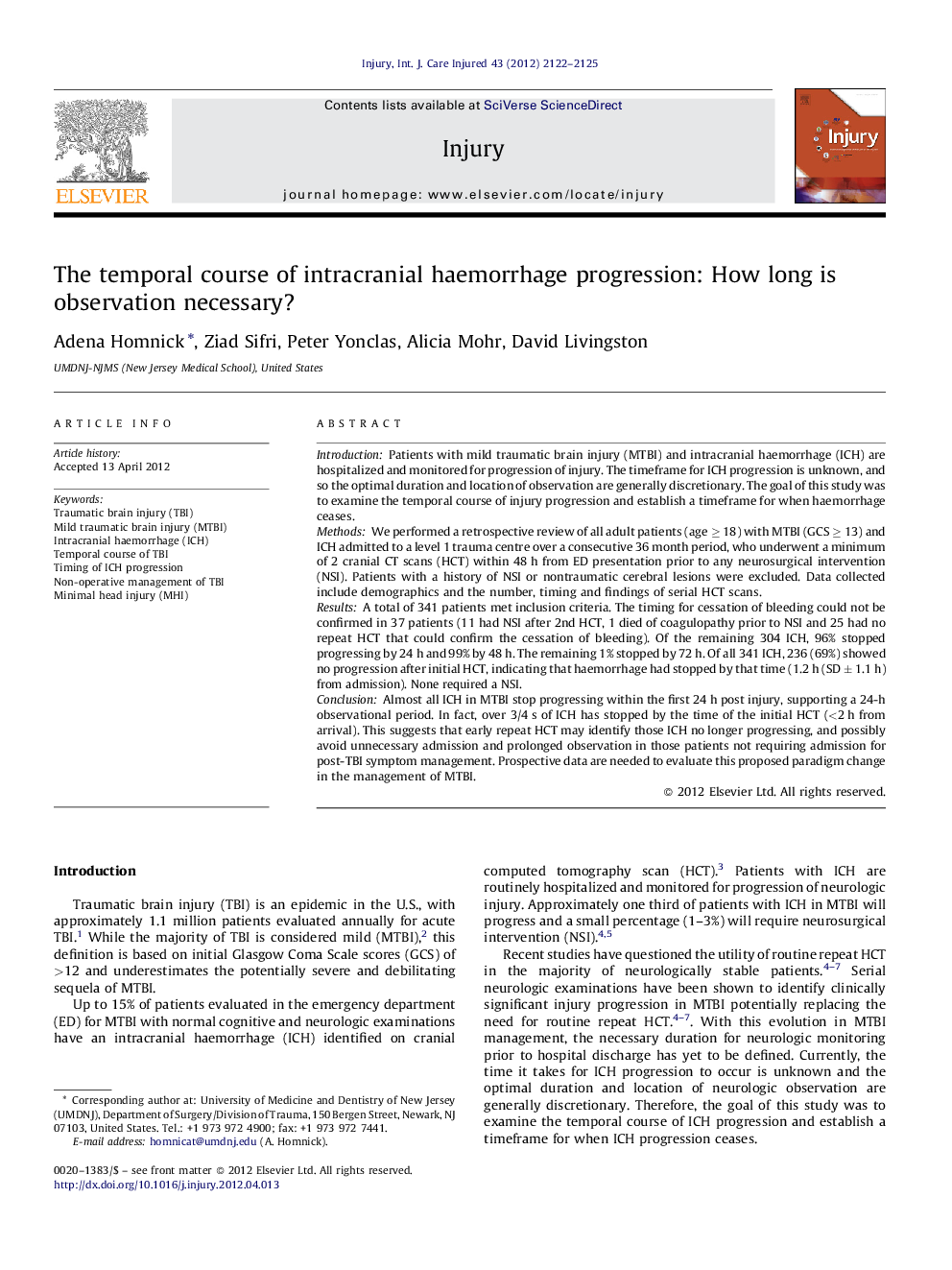| کد مقاله | کد نشریه | سال انتشار | مقاله انگلیسی | نسخه تمام متن |
|---|---|---|---|---|
| 3240702 | 1206050 | 2012 | 4 صفحه PDF | دانلود رایگان |

IntroductionPatients with mild traumatic brain injury (MTBI) and intracranial haemorrhage (ICH) are hospitalized and monitored for progression of injury. The timeframe for ICH progression is unknown, and so the optimal duration and location of observation are generally discretionary. The goal of this study was to examine the temporal course of injury progression and establish a timeframe for when haemorrhage ceases.MethodsWe performed a retrospective review of all adult patients (age ≥ 18) with MTBI (GCS ≥ 13) and ICH admitted to a level 1 trauma centre over a consecutive 36 month period, who underwent a minimum of 2 cranial CT scans (HCT) within 48 h from ED presentation prior to any neurosurgical intervention (NSI). Patients with a history of NSI or nontraumatic cerebral lesions were excluded. Data collected include demographics and the number, timing and findings of serial HCT scans.ResultsA total of 341 patients met inclusion criteria. The timing for cessation of bleeding could not be confirmed in 37 patients (11 had NSI after 2nd HCT, 1 died of coagulopathy prior to NSI and 25 had no repeat HCT that could confirm the cessation of bleeding). Of the remaining 304 ICH, 96% stopped progressing by 24 h and 99% by 48 h. The remaining 1% stopped by 72 h. Of all 341 ICH, 236 (69%) showed no progression after initial HCT, indicating that haemorrhage had stopped by that time (1.2 h (SD ± 1.1 h) from admission). None required a NSI.ConclusionAlmost all ICH in MTBI stop progressing within the first 24 h post injury, supporting a 24-h observational period. In fact, over 3/4 s of ICH has stopped by the time of the initial HCT (<2 h from arrival). This suggests that early repeat HCT may identify those ICH no longer progressing, and possibly avoid unnecessary admission and prolonged observation in those patients not requiring admission for post-TBI symptom management. Prospective data are needed to evaluate this proposed paradigm change in the management of MTBI.
Journal: Injury - Volume 43, Issue 12, December 2012, Pages 2122–2125